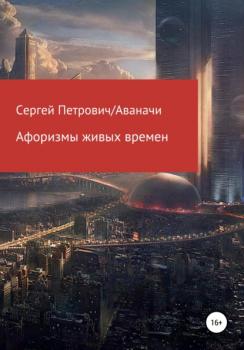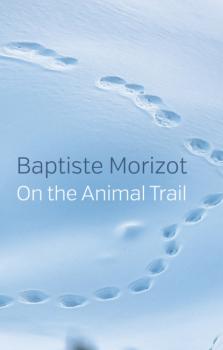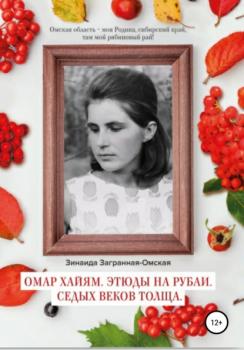Афоризмы и цитаты
Различные книги в жанре Афоризмы и цитатыАфоризмы живых времен
Данная книга включает в себя около семи тысяч афоризмов. Она названа так потому, что подобные мысли волновали людей на заре человечества, волнуют ныне и будут волновать всегда. Это последний, сильно обновленный, вариант книги. В итоге над своими афоризмами автор работал более семи лет. Афоризмы любят все. Если бы литературные произведения оценивались неким математическим коэффициентом, равным отношению объема информации к количеству слов, афоризмы были бы вне конкуренции. В этом их притягательная сила. Сознательно или нет, но люди постоянно совершенствуют способности четко выражать свои мысли. Афоризмы им помогают в этом святом деле. Приятного чтения!
On the Animal Trail
From the forests of Yellowstone to the steppes of the Haut-Var, the French philosopher and environmentalist Baptiste Morizot invites us to develop a different relationship to nature: to become detectives of nature and to follow the footprints of the many wonderful and extraordinary animals with which we share the Earth. By deciphering and interpreting an animal’s footprints and other signs, we gradually discover not only which animal it is, but the animal’s motives too. Through this kind of ‘philosophical tracking’, we come to see the world from the animal’s point of view, to learn to live in this world from the perspective of another species. We begin to let go of our anthropocentric point of view and to recapture the kind of perspective that our ancestors once had when they had no choice but to adopt an animal point of view if they wanted to survive. In short, by following animal trails, we learn how to pay increased attention to the living world around us and how to cohabit this world with others, thereby enriching our understanding of other species, of the world we share with them and of ourselves.
Der verborgene Sinn des Lebensrücklaufes
"Seit Jahrtausenden fürchten Menschen – bewusst oder unbewusst – ein schreckliches Ende ihres Daseins. Nicht das Sterben ängstigt sie, vielmehr die Erwartung einer grausamen Abrechnung ihrer Gedanken, Gefühle und Handlungen. Der Begriff «Hölle» lässt Generation um Generation erneut zittern vor einer höchst individuellen Verurteilung jedes Einzelnen. Selbst die, die gar nicht mehr an Gott glauben, erstarren bei der Vorstellung einer ewigen Verdammnis. Vorliegendes Buch räumt mit diesem religiösen Schauermärchen auf und hält für die Leser eine befreiende und hoffnungsvolle Botschaft bereit: Es gibt kein «Jüngstes Gericht» und auch keine Bestrafungen und erst recht keine ewigen Höllenqualen! Im Gegenteil: Am Ende wartet die Vollendung auf jeden Einzelnen. Das menschliche Dasein ist ein Prozess des Lernens und der Entwicklung, viele Inkarnationen lang. Jede Seele war am Beginn einmal vollkommen und wird es am Ende wieder sein. Mit dieser Zuversicht lässt uns der «Lebensrücklauf» erkennen, wer wir sind, wo wir stehen und was wir getan haben. Diese Einsicht hilft uns dabei, die logischen Konsequenzen unseres Handelns zu tragen und Selbstverantwortung zu übernehmen, bis wir in das Reich der ewigen Glückseligkeit zurückkehren." Ina Kleinod, im September 2020
Metamorphoses
We are all fascinated by the mystery of metamorphosis – of the caterpillar that transforms itself into a butterfly. Their bodies have almost nothing in common. They don’t share the same world: one crawls on the ground and the other flutters its wings in the air. And yet they are one and the same life. Emanuele Coccia argues that metamorphosis – the phenomenon that allows the same life to subsist in disparate bodies – is the relationship that binds all species together and unites the living with the non-living. Bacteria, viruses, fungi, plants, animals: they are all one and the same life. Each species, including the human species, is the metamorphosis of all those that preceded it – the same life, cobbling together a new body and a new form in order to exist differently. And there is no opposition between the living and the non-living: life is always the reincarnation of the non-living, a carnival of the telluric substance of a planet – the Earth – that continually draws new faces and new ways of being out of even the smallest particle of its disparate body. By highlighting what joins humans together with other forms of life, Coccia’s brilliant reflection on metamorphosis encourages us to abandon our view of the human species as static and independent and to recognize instead that we are part of a much larger and interconnected form of life.
Омар Хайям. Этюды на рубаи. Седых веков толща!
На рубаи Омара Хайяма этюды, чтобы из жизни человечества исчезли зла груды Творческой души зигзаги! Любовь – это мирной жизни знак. Экспромты на стихи Омара Хайяма из книги «Сад желаний»
Das Märchen von der Gleichheit
Es geht hier um eine grundlegende Orientierung in unserer immer unübersichtlicher werdenden Welt. Im Gegensatz zur Natur, die wir dank naturwissenschaftlicher Gesetzmäßigkeiten immer besser verstehen, scheint sich die Kultur mit Politik, Wirtschaft, Recht, Ethik und Religion einer naturwissenschaftlichen Betrachtung zu entziehen. Doch auch kulturelle Systeme sind lebendige Systeme, die aus ihren natürlichen Wurzeln zu begreifen sind. Und wie alle lebendigen Systeme müssen auch sie bestimmten Prinzipien folgen, wenn sie weiterleben wollen. Denn anders als das Tier braucht der Mensch, dessen Gehirn ihn zum evolutionären Grenzgänger macht, eine lebenserhaltende Richtschnur, die ihm hilft, sich im Kontinuum der Biosphäre zu halten. Sie begegnet uns als Gesetz in Religion, Ethik und Recht und besitzt Kompaßfunktion für ein Wesen, das, wie Sartre sagt, zur Freiheit verdammt ist. Mit der Qualität dieses Gesetzes nun, das sich der freie Mensch selbst gibt, steht und fällt seine Existenz. Die in der Natur verankerte religiöse Urnorm erweist sich als das mächtige, kulturschaffende Gesetz, weil es alle entscheidenden Bedingungen biologischen Lebens enthält. Der Mensch ist ihm jahrtausendelang gefolgt. Mit seiner Hilfe gelingt es ihm, die fundamentalen Voraussetzungen allen Lebens auf kultureller Ebene wirksam werden zu lassen. Die Neuzeit aber vollzieht einen radikalen normativen Umbruch. Das differenzierende, aufbauende Gesetz weicht einer entdifferenzierenden, destruktiven Norm: der Mensch gibt sich eine egalitaristisch-sozialistische Verfassung. Dieses Gleichheitsdenken aber spiegelt letztlich nur die unheilvolle Isolation des Menschen von der Natur durch die ihm eigentümliche symbolische Sphäre (Geld, Medien, Technik), deren entfesseltes Wachstum ihm nun – hier bewahrheitet sich der Zweite Hauptsatz der Thermodynamik – das Wasser abgräbt und dem entropischen Abgrund zutreibt: Ein interdisziplinäres Buch, das die wesentlichen Zusammenhänge dieser Welt deutlich macht.
Philosophical Ideas
Philosophical Ideas: A Historical Study invites the reader to consider central ideas from Plato, Hegel, Vico, and Cassirer from points of view that have not been fully articulated in the most frequently encountered interpretations of their works. It is an examination of the ideas of poetics, dialectics, science, and symbol as they function in their works with focus on the problem of knowledge as present in each of them.
The history of philosophy, approached in this way, is a treasure house of ideas that constitutes the subject matter of the contemplative life.









